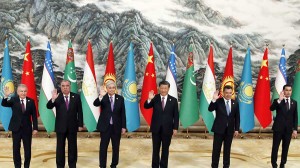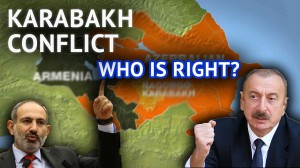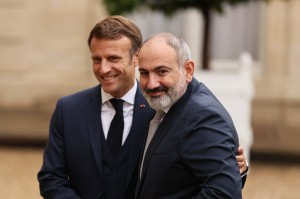 Armenian Prime Minister Nikol Pashinyan seeks a new path forward following Azerbaijan’s seizure of Nagorno-Karabakh and the radical shift in regional dynamics in the South Caucasus. His initiatives aim to revitalize Armenia and resolve longstanding issues, forging a new regional posture. However, domestic divisions and external challenges complicate his efforts. Azerbaijan has not responded to his calls for alternative cooperation while he remains skeptical of Azerbaijan’s overtures. Therefore, Pashinyan prefers to deal with Armenia’s domestic priorities and move carefully towards regional cooperation.
Armenian Prime Minister Nikol Pashinyan seeks a new path forward following Azerbaijan’s seizure of Nagorno-Karabakh and the radical shift in regional dynamics in the South Caucasus. His initiatives aim to revitalize Armenia and resolve longstanding issues, forging a new regional posture. However, domestic divisions and external challenges complicate his efforts. Azerbaijan has not responded to his calls for alternative cooperation while he remains skeptical of Azerbaijan’s overtures. Therefore, Pashinyan prefers to deal with Armenia’s domestic priorities and move carefully towards regional cooperation.
Pashinyan Between Armenia and Azerbaijan: The Curse of Radical Changes
 Şubat 28th, 2024
Şubat 28th, 2024  oztarsu
oztarsu EU Seeks to Match Chinese Influence in Central Asia
 Şubat 9th, 2024
Şubat 9th, 2024  oztarsu
oztarsu 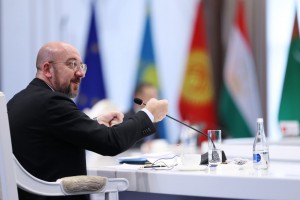 The EU is pushing a new strategy to challenge growing Chinese influence in Central Asia.
The EU is pushing a new strategy to challenge growing Chinese influence in Central Asia.
Central Asia is becoming a magnet for global powers. Given its advantage of geographical proximity, China is increasing its influence in the region with promises of mega projects. The European Union (EU), on the other hand, aims to strengthen its presence in the region and to reduce Chinese influence with a new strategy.
Why Armenia and Azerbaijan Diverge on the Zangezur Corridor
 Şubat 7th, 2024
Şubat 7th, 2024  oztarsu
oztarsu 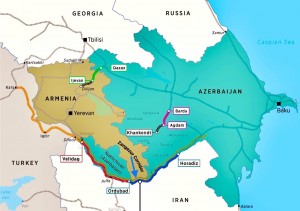 Azerbaijan’s President Ilham Aliyev has upped the pressure on Armenia, urging it to fulfill its commitment under the ceasefire agreement and open the Zangezur Corridor. Aliyev’s statement has put into question the fate of the final peace agreement that was expected to be realized in the end of 2023. While Armenia is hesitant in this project, Azerbaijan continues to expect the corridor to open soon. On the other side, Armenian Prime Minister Nikol Pashinyan is busy mitigating the criticism directed at him by the opposition and reorienting Armenia’s political course in the post-war political atmosphere.
Azerbaijan’s President Ilham Aliyev has upped the pressure on Armenia, urging it to fulfill its commitment under the ceasefire agreement and open the Zangezur Corridor. Aliyev’s statement has put into question the fate of the final peace agreement that was expected to be realized in the end of 2023. While Armenia is hesitant in this project, Azerbaijan continues to expect the corridor to open soon. On the other side, Armenian Prime Minister Nikol Pashinyan is busy mitigating the criticism directed at him by the opposition and reorienting Armenia’s political course in the post-war political atmosphere.
Central Asia: A Lucrative Back Door to Russia
 Ocak 3rd, 2024
Ocak 3rd, 2024  oztarsu
oztarsu 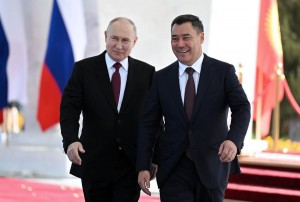 Western European companies are avoiding sanctions imposed on Russia by trading via third countries – and central Asian economies are cashing in. Since Russia’s full-scale invasion of Ukraine in February 2022, there has been a campaign of moral and material support for Ukraine by Western countries wanting to protect the Ukrainian people and oppose Moscow’s aggression.
Western European companies are avoiding sanctions imposed on Russia by trading via third countries – and central Asian economies are cashing in. Since Russia’s full-scale invasion of Ukraine in February 2022, there has been a campaign of moral and material support for Ukraine by Western countries wanting to protect the Ukrainian people and oppose Moscow’s aggression.
Armenia Needs Help to Escape Regional Isolation
 Kasım 15th, 2023
Kasım 15th, 2023  oztarsu
oztarsu 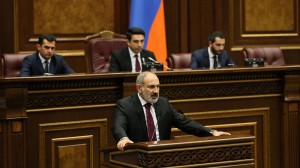 Participating in the Tbilisi Silk Road Forum in Georgia, Pashinyan outlined his government’s plans to cooperate with neighboring countries and open up to the world through road, rail, and energy links.
Participating in the Tbilisi Silk Road Forum in Georgia, Pashinyan outlined his government’s plans to cooperate with neighboring countries and open up to the world through road, rail, and energy links.
Pashinyan said his landlocked country should be connected to the Black Sea, the Mediterranean, the Caspian Sea, and the Persian Gulf as soon as possible by joining projects with its neighbors to open up transit routes. As well as connecting Armenia to the sea, these would provide links between Georgian Black Sea ports and the Gulf, he told the forum in late October.
China builds economic integration in Central Asia
 Kasım 2nd, 2023
Kasım 2nd, 2023  oztarsu
oztarsu How the US Can Open Doors in Central Asia
 Kasım 2nd, 2023
Kasım 2nd, 2023  oztarsu
oztarsu 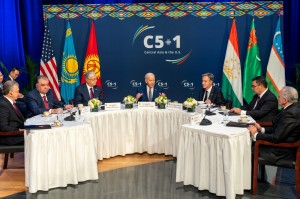 The US is eager to establish a new Central Asia policy after years of neglect. Realizing that it has neglected Central Asia, partly because of the attention devoted to halting Russia’s all-out war on Ukraine, and aware that China is intensifying its economic influence, the US is aiming to reset its policy towards the region.
The US is eager to establish a new Central Asia policy after years of neglect. Realizing that it has neglected Central Asia, partly because of the attention devoted to halting Russia’s all-out war on Ukraine, and aware that China is intensifying its economic influence, the US is aiming to reset its policy towards the region.
Iranian fear to Turkey’s growing influence in South Caucasus is an apparent reality
 Mart 25th, 2021
Mart 25th, 2021  oztarsu
oztarsu 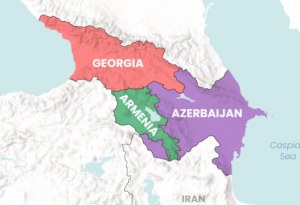 The Second Karabakh War that happened last fall has brought about the alteration of the geopolitical situation in the region of the South Caucasus. As Russia has kept its traditional strategic power along with increasing military influence in the South Caucasus, Turkey has managed to enter the region as the second regional power. Iran is the only country that could not achieve any gains from the Karabakh War. It could be the third factor in the region. The determination of the fate of the geopolitical situation connected to peace and stability in the South Caucasus is still unforeseen. Number of experts have started to argue on what circumstances could occur further in the South Caucasus in the context of Russia-Turkey-Iran cooperation or competition.
The Second Karabakh War that happened last fall has brought about the alteration of the geopolitical situation in the region of the South Caucasus. As Russia has kept its traditional strategic power along with increasing military influence in the South Caucasus, Turkey has managed to enter the region as the second regional power. Iran is the only country that could not achieve any gains from the Karabakh War. It could be the third factor in the region. The determination of the fate of the geopolitical situation connected to peace and stability in the South Caucasus is still unforeseen. Number of experts have started to argue on what circumstances could occur further in the South Caucasus in the context of Russia-Turkey-Iran cooperation or competition.
A New War in Nagorno-Karabakh
 Ekim 19th, 2020
Ekim 19th, 2020  oztarsu
oztarsu Contemporary Issues in International Relations: Problems of the International Community
 Haziran 16th, 2020
Haziran 16th, 2020  oztarsu
oztarsu 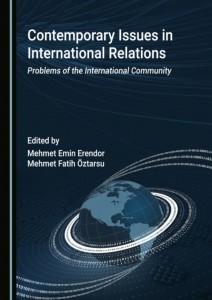 Recent regional and global crises have changed the structure of international relations and cause countries to be inconsistent in their policies. Examples of these include the protest demonstrations and political crises which started in the Middle East and African countries in 2010 known as the ‘Arab Spring’, which had a major effect on Syria, and the movement towards Brexit. These emerging regional and global crises have highlighted the shortcomings of the discipline of international relations and the need for a new, detailed study to be conducted. The topics in this book have been carefully selected in order to provide a more objective assessment of the recent and ongoing problems of the international community.
Recent regional and global crises have changed the structure of international relations and cause countries to be inconsistent in their policies. Examples of these include the protest demonstrations and political crises which started in the Middle East and African countries in 2010 known as the ‘Arab Spring’, which had a major effect on Syria, and the movement towards Brexit. These emerging regional and global crises have highlighted the shortcomings of the discipline of international relations and the need for a new, detailed study to be conducted. The topics in this book have been carefully selected in order to provide a more objective assessment of the recent and ongoing problems of the international community.

